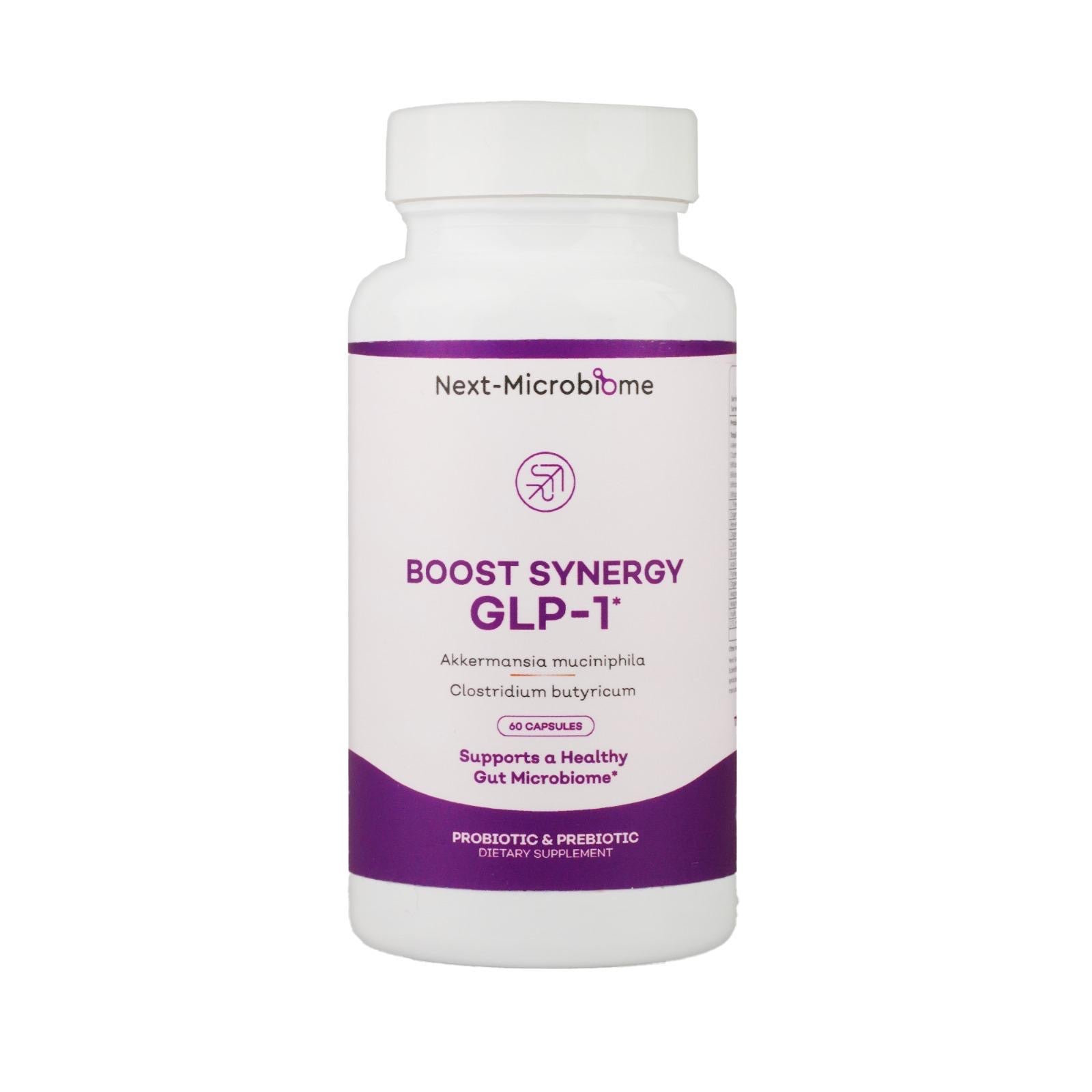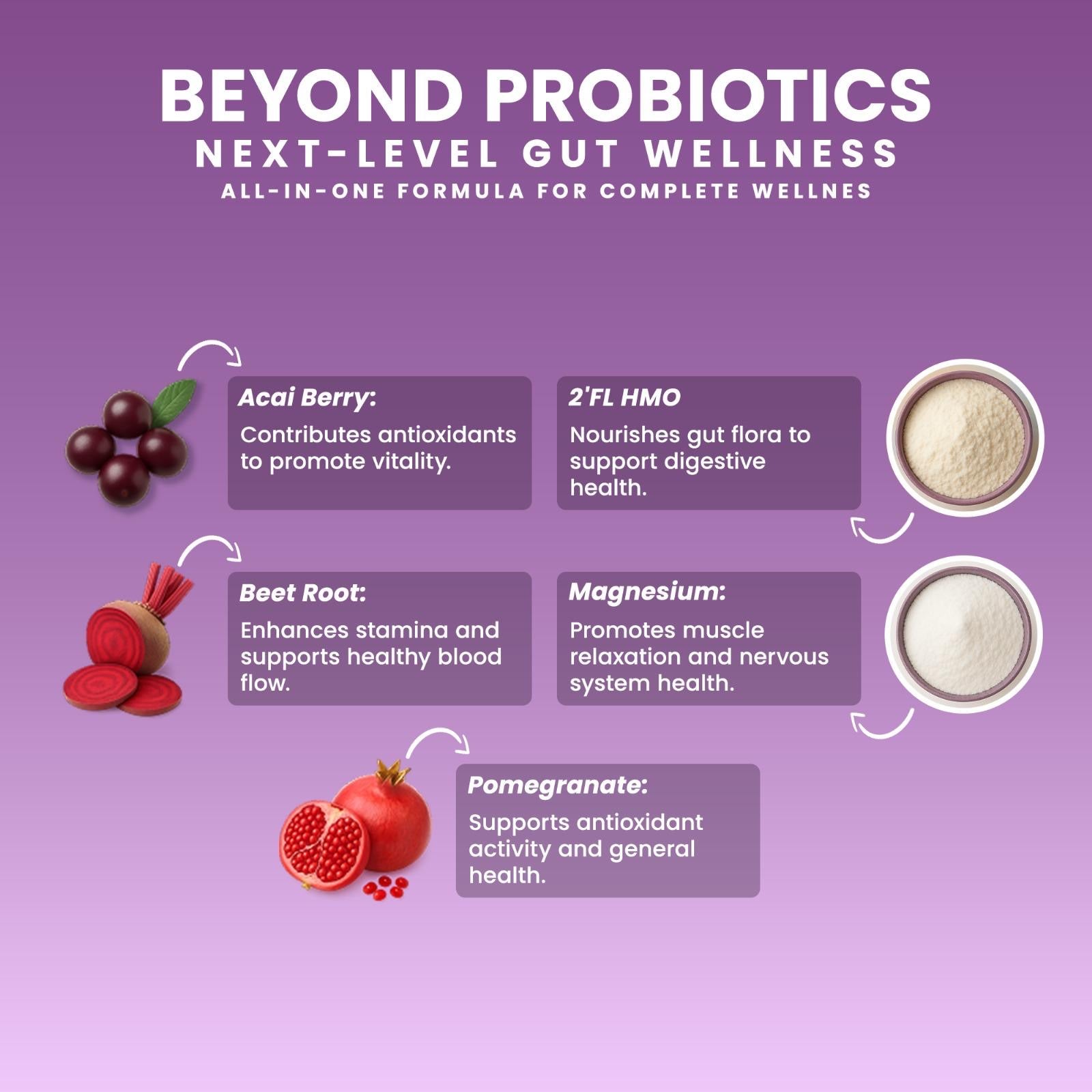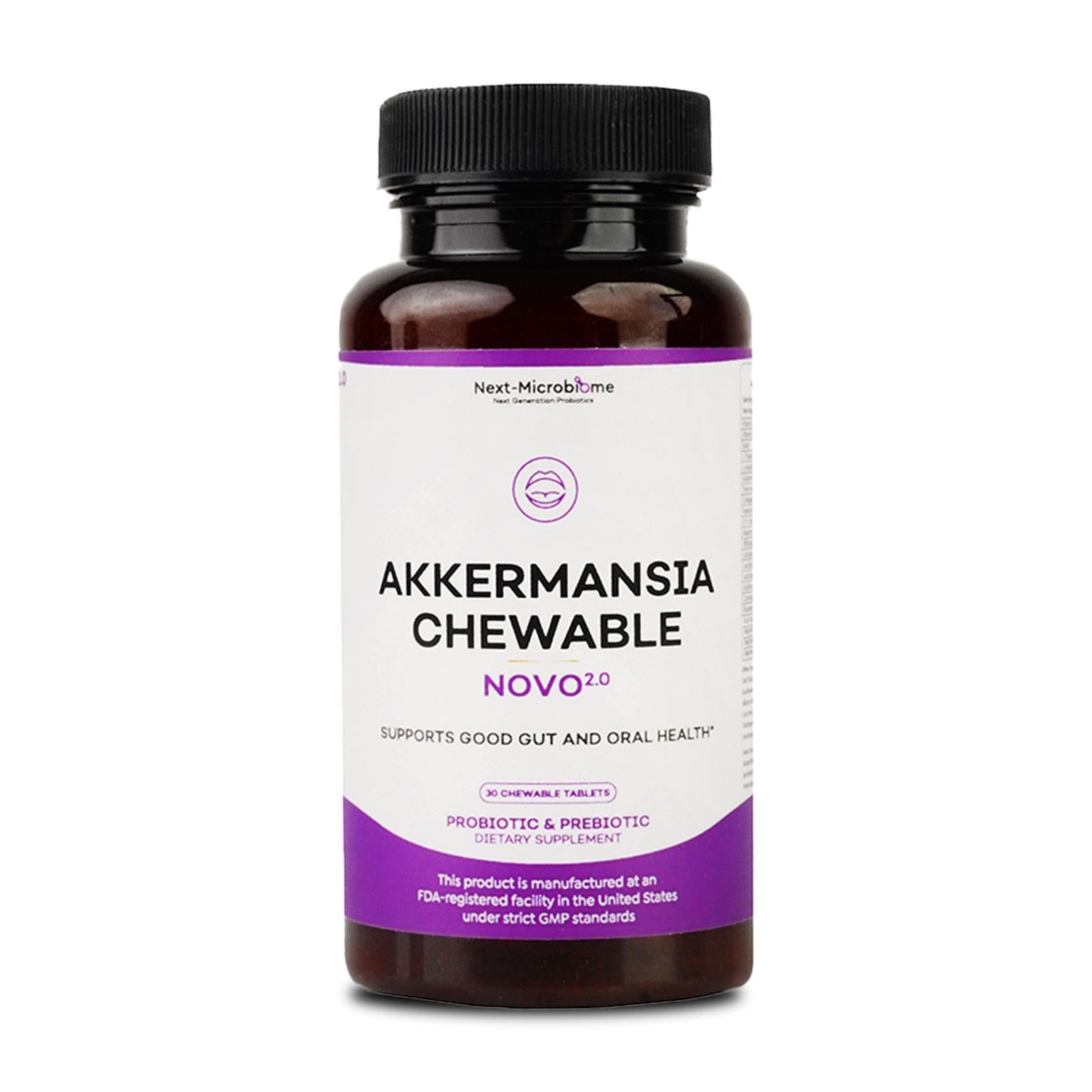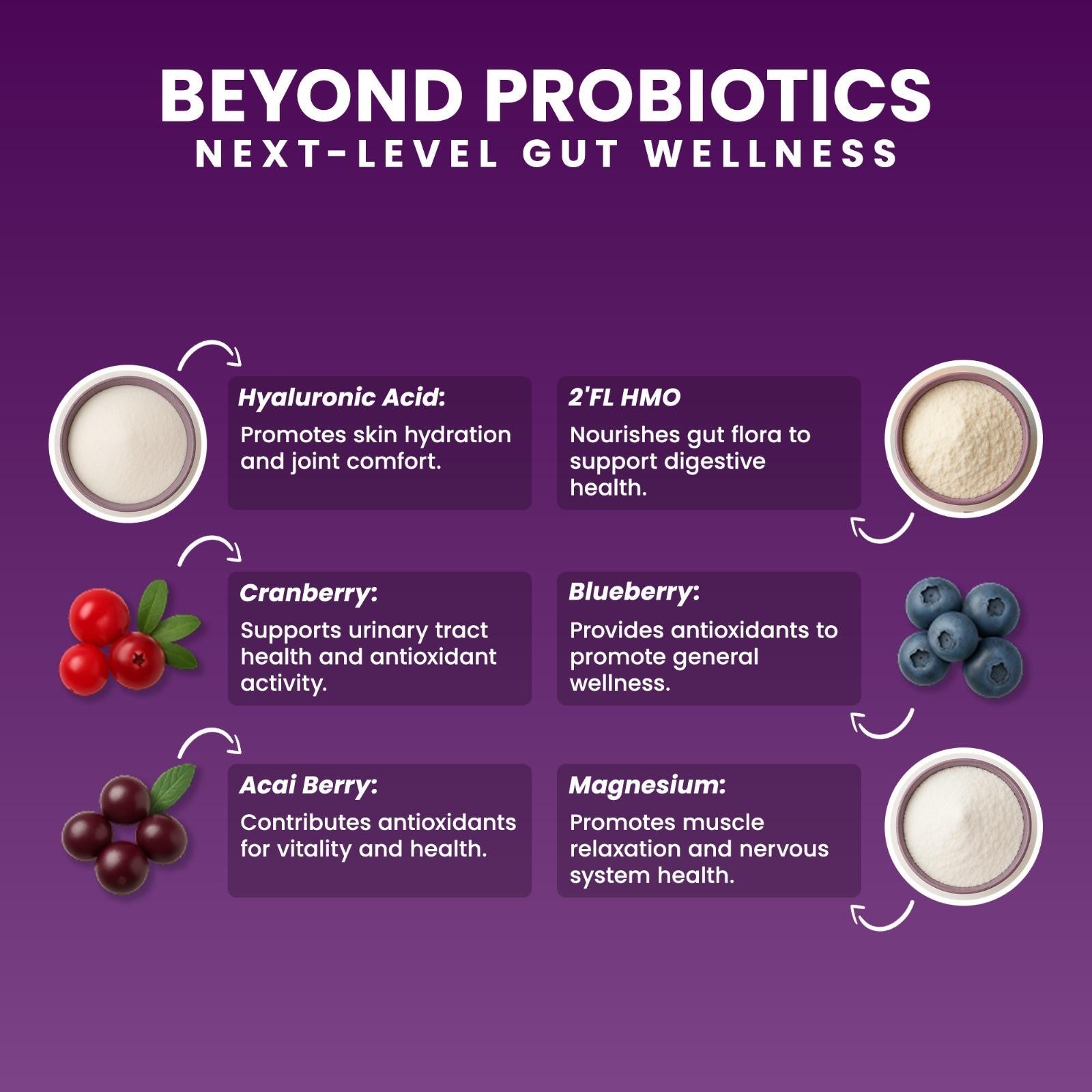
Akkermansia Probiotics for Stomach Health & Comfort
Probiotics for Stomach Health: Reduce Sensitivity & Support Digestive Comfort
Stomach discomfort — sensitivity, indigestion, pressure, burning, early fullness, nausea, or post-meal heaviness — often begins higher in the GI tract than typical bloating or gas. Unlike lower-gut issues, stomach discomfort is deeply linked to microbiota imbalance, mucosal irritation, gastric motility, and the oral–gut microbial pathway.
As more people search for “probiotics for stomach health,” “probiotics for better digestion,” and “probiotics for digestive health,” research now shows that targeted probiotics can help stabilize stomach function by strengthening the gut lining, balancing microbes, and reducing irritation.
This article breaks down how probiotics support stomach wellness, which strains matter, and how to choose the proper formulation.
Stomach Health Starts With the Microbiota — Not Just Acid
Stomach discomfort is often blamed on “too much acid,” but in reality, most chronic upper-GI issues are associated with:
-
weakened mucosal lining
-
disrupted stomach–gut motility
-
imbalance in oral and upper-GI microbiota
-
inflammation signaling
-
poor digestion of carbohydrates or fats
-
stress-driven vagus nerve dysfunction
A 2024 review in Nutrients found that probiotics improve gastrointestinal symptoms, reduce inflammation markers, and support mucosal barrier function throughout the digestive tract
👉 https://pmc.ncbi.nlm.nih.gov/articles/PMC10975713/
Another 2025 umbrella meta-analysis reported that probiotics significantly reduce upper-GI symptoms like nausea, epigastric discomfort, fullness, and digestive sensitivity
👉 https://eurjmedres.biomedcentral.com/articles/10.1186/s40001-025-02788-w
Stomach discomfort is often a microbiota problem, not just an acid issue.

How Probiotics Support Stomach Health
Probiotics relieve stomach symptoms through multiple mechanisms:
1. Supporting the Oral–Gut Microbiota Axis
The stomach interacts directly with microbes from the mouth, meaning oral microbiota imbalance can affect stomach sensitivity.
Probiotics help rebalance this “upper GI” microbial flow and reduce inflammatory signals.
2. Improving Gastric Motility
Some strains support smoother gastric emptying, reducing early fullness, pressure, and discomfort.
3. Strengthening the Gastric Mucosal Barrier
Certain probiotics help stabilize mucin layers and protect epithelial surfaces from irritants.
4. Reducing Inflammatory Sensitivity
Probiotics regulate immune responses in the stomach lining, reducing hypersensitivity and discomfort.
5. Supporting Whole-GI Microbial Stability
A 2023 RCT in Frontiers in Nutrition found that multi-strain probiotics significantly improved upper-GI symptoms including bloating, pressure, and discomfort
👉 https://www.frontiersin.org/journals/nutrition/articles/10.3389/fnut.2023.1196625/full
When microbial balance improves, stomach sensitivity decreases.

Best Probiotic Strains for Stomach Health
Bifidobacterium breve & B. adolescentis
Reduce abdominal pressure and support smoother digestion.
Bifidobacterium BB-12
Improves stool regularity and reduces upstream digestive stress that can lead to stomach discomfort.
Lactobacillus species
Support upper-GI microbial balance and ease occasional indigestion.
Clostridium butyricum
A potent butyrate-producing strain that:
-
supports gut lining health
-
stabilizes mucin layers
-
reduces inflammatory sensitivity
-
improves stomach tolerance indirectly via the gut lining
These strains form the backbone of probiotics for stomach health.
Stomach Sensitivity & Akkermansia: The Lining Connection
Many stomach-related symptoms originate in the intestinal lining, not only the stomach itself.
Akkermansia muciniphila strengthens the mucin layer, improves gut barrier integrity, and reduces inflammatory signaling that contributes to stomach sensitivity.
To understand the gut-lining connection, read:
👉 Probiotic Supplements for Gut Health (Blog 3)
Probiotics + Akkermansia = stronger lining → calmer stomach → smoother digestion.
Choosing the Best Probiotic Supplement for Stomach Health
Choose a probiotic that includes:
-
Bifidobacterium strains
-
Lactobacillus species for upper GI comfort
-
Clostridium butyricum for lining support
-
Prebiotics such as HMO 2’-FL or inulin
-
Polyphenols for mucosal support
-
A clean-label formula with research-backed strains
For advanced microbiota support targeting stomach comfort, gut lining health, and overall GI function, explore:

🟦 INTERNAL LINKS
-
Digestive Probiotics: Reduce Bloating & Strengthen Gut Lining (Blog 1)
-
Probiotics for Stomach Health: Reduce Sensitivity & Support Digestive
❓ FAQ (6 Questions)
1. What probiotics are best for stomach health?
Strains such as Bifidobacterium breve, B. adolescentis, Lactobacillus species, and Clostridium butyricum offer the strongest support.
2. Can probiotics help with stomach sensitivity?
Yes — they support the mucosal barrier and help regulate inflammatory responses that cause sensitivity.
3. Do probiotics help with indigestion?
Certain strains improve upper-GI comfort and support smoother gastric emptying.
4. Can probiotics help with nausea or early fullness?
Some strains support gastric motility and reduce fermentation-related pressure.
5. Should probiotics be taken daily for stomach health?
Yes — daily supplementation maintains microbial balance and lowers the risk of recurring discomfort.
6. Do probiotics work with prebiotics for stomach health?
Absolutely. Prebiotics feed probiotics, enhancing their ability to stabilize the stomach–gut microbial axis.
Written by Ali Rıza Akın
Microbiome Scientist, Author & Founder of Next-Microbiome
Ali Rıza Akın is a microbiome scientist with nearly 30 years of biotechnology and translational research experience in Silicon Valley. He is the discoverer of Christensenella californii, a novel human-associated bacterial species linked to metabolic health and mucosal integrity.
His scientific work spans:
-
mucosal immunology
-
gut barrier biology
-
oral–gut microbiome interactions
-
SCFA metabolism
-
next-generation probiotics (Akkermansia, Christensenella, Clostridium butyricum)
-
host–microbe signaling
-
microbial therapeutics
He is the author of Bakterin Kadar Yaşa: İçimizdeki Evren (Live as Long as Your Bacteria) and a contributor to Bacterial Therapy of Cancer: Methods and Protocols (Springer, Methods in Molecular Biology).
As Founder of Next-Microbiome, Ali develops advanced synbiotic formulations — including the industry’s first chewable Akkermansia-supporting synbiotic — designed to strengthen the gut lining, support metabolic resilience, enhance mucosal immunity, and harmonize the oral–gut microbiome axis.










